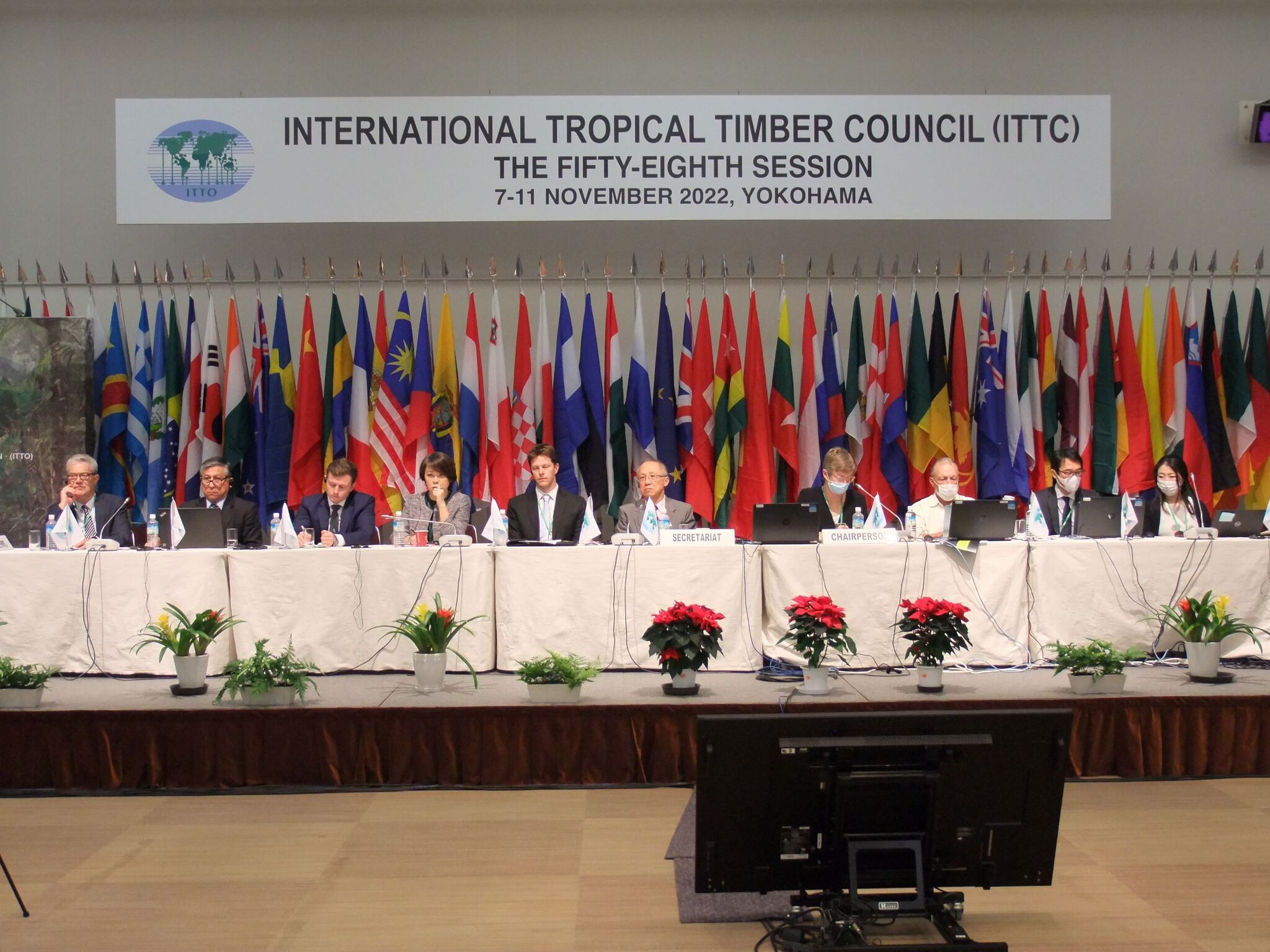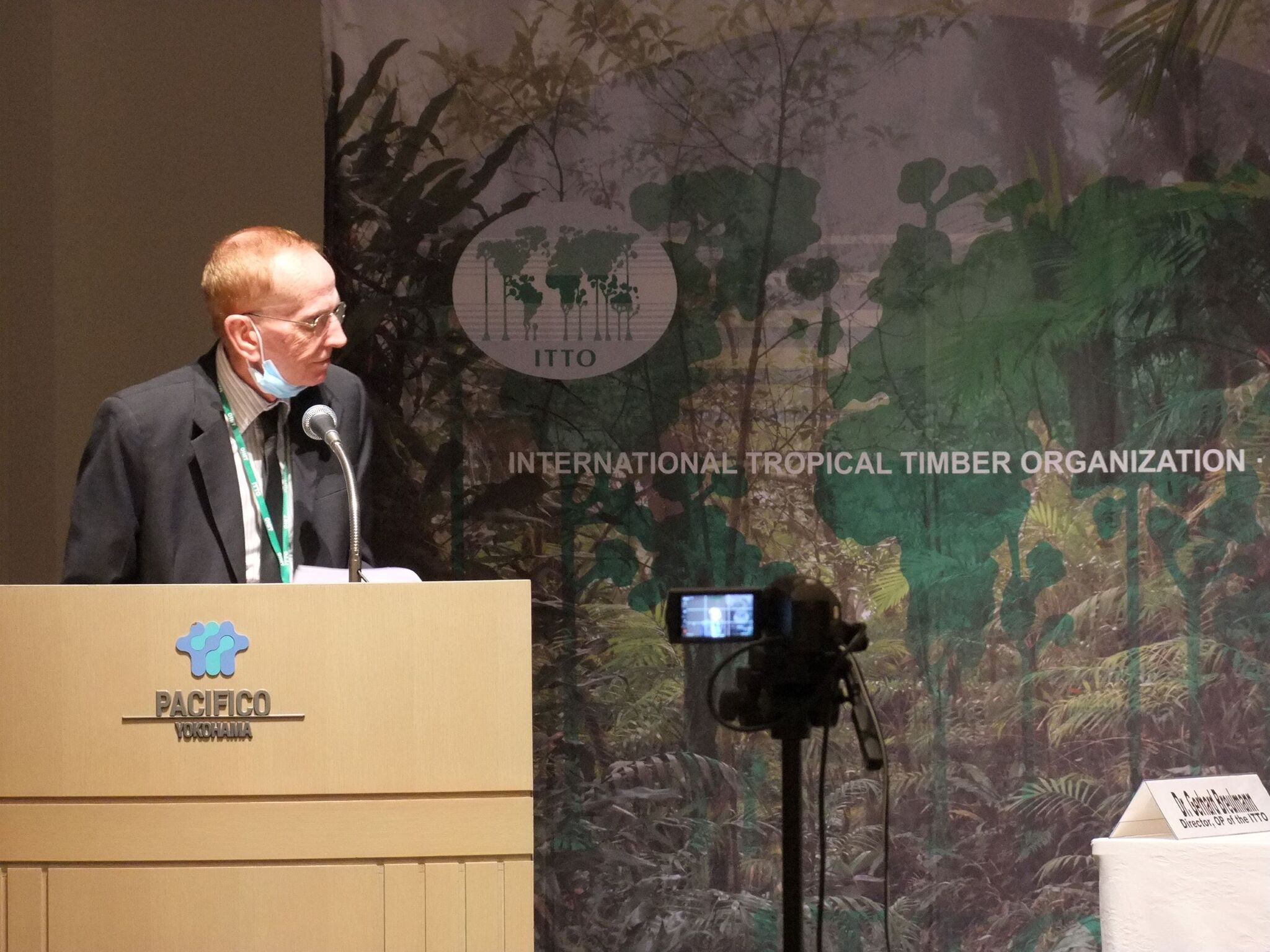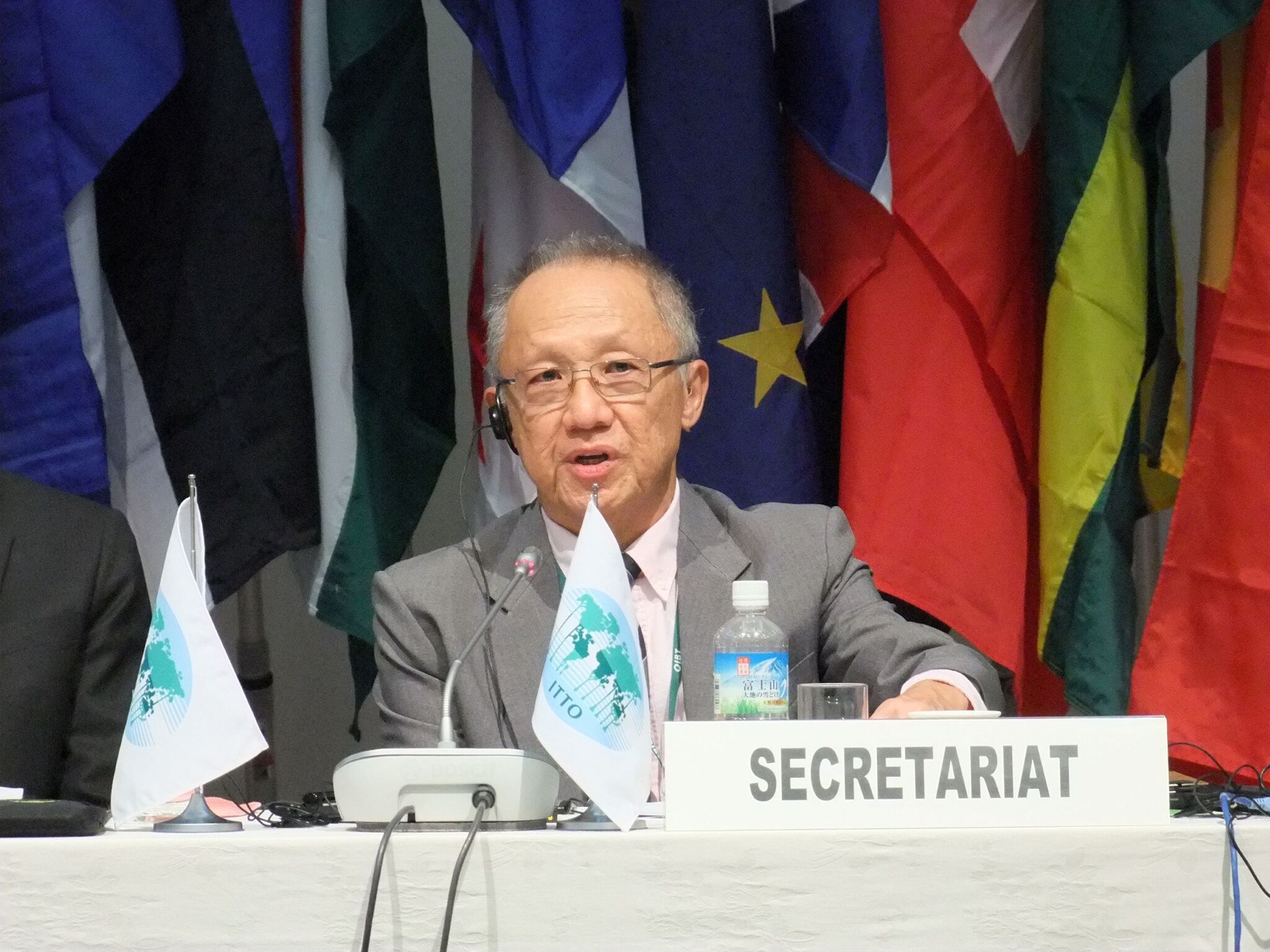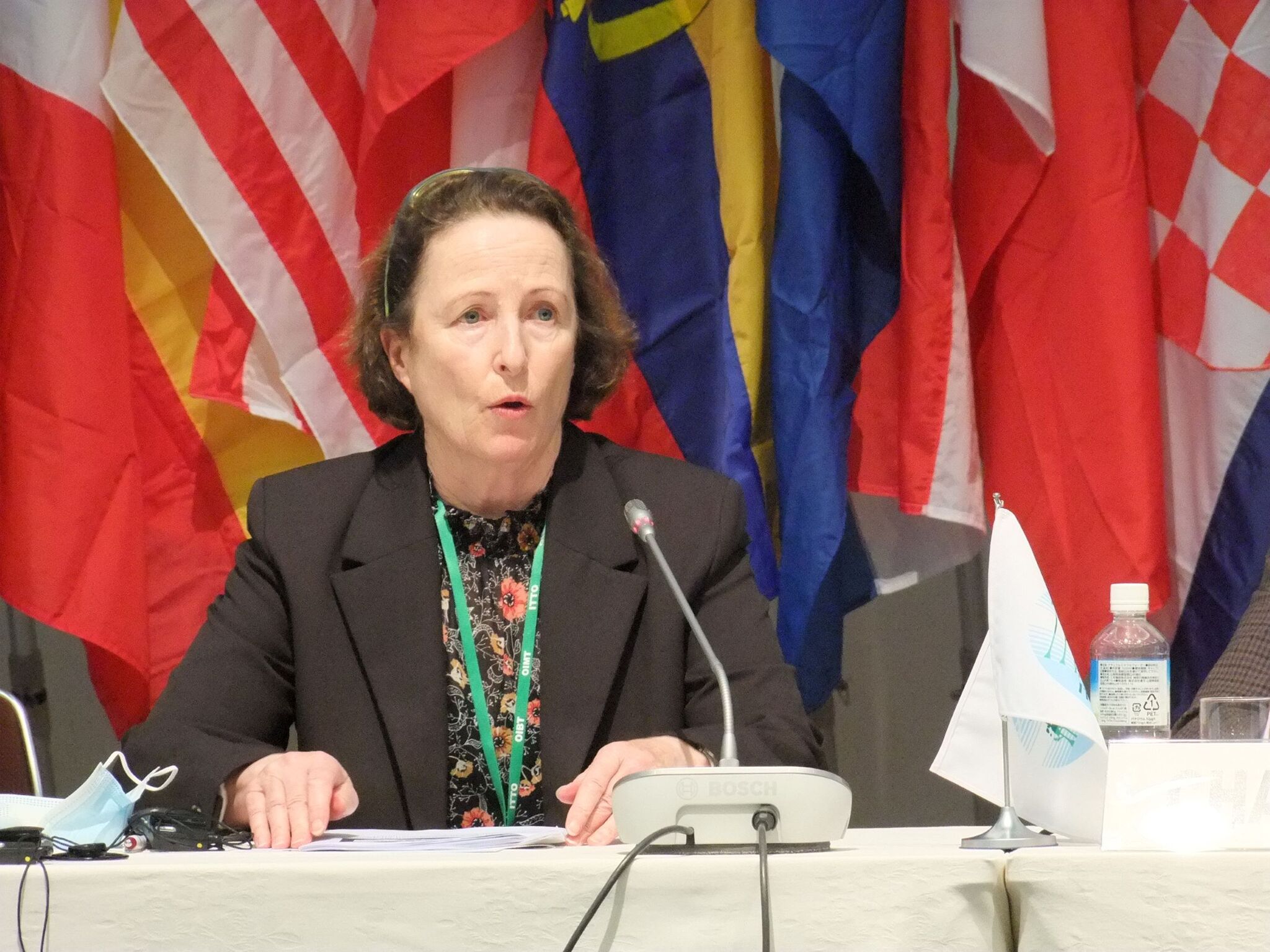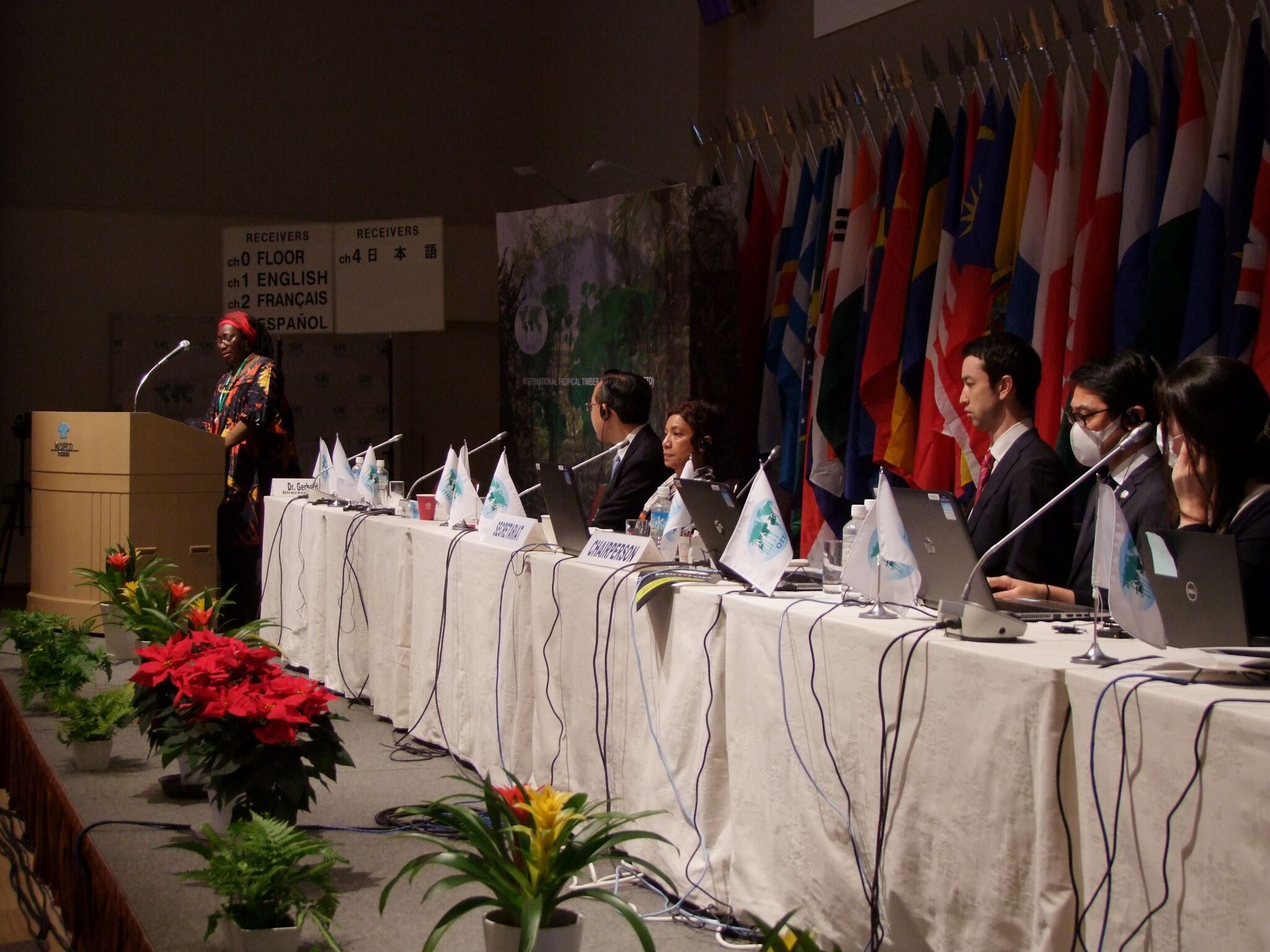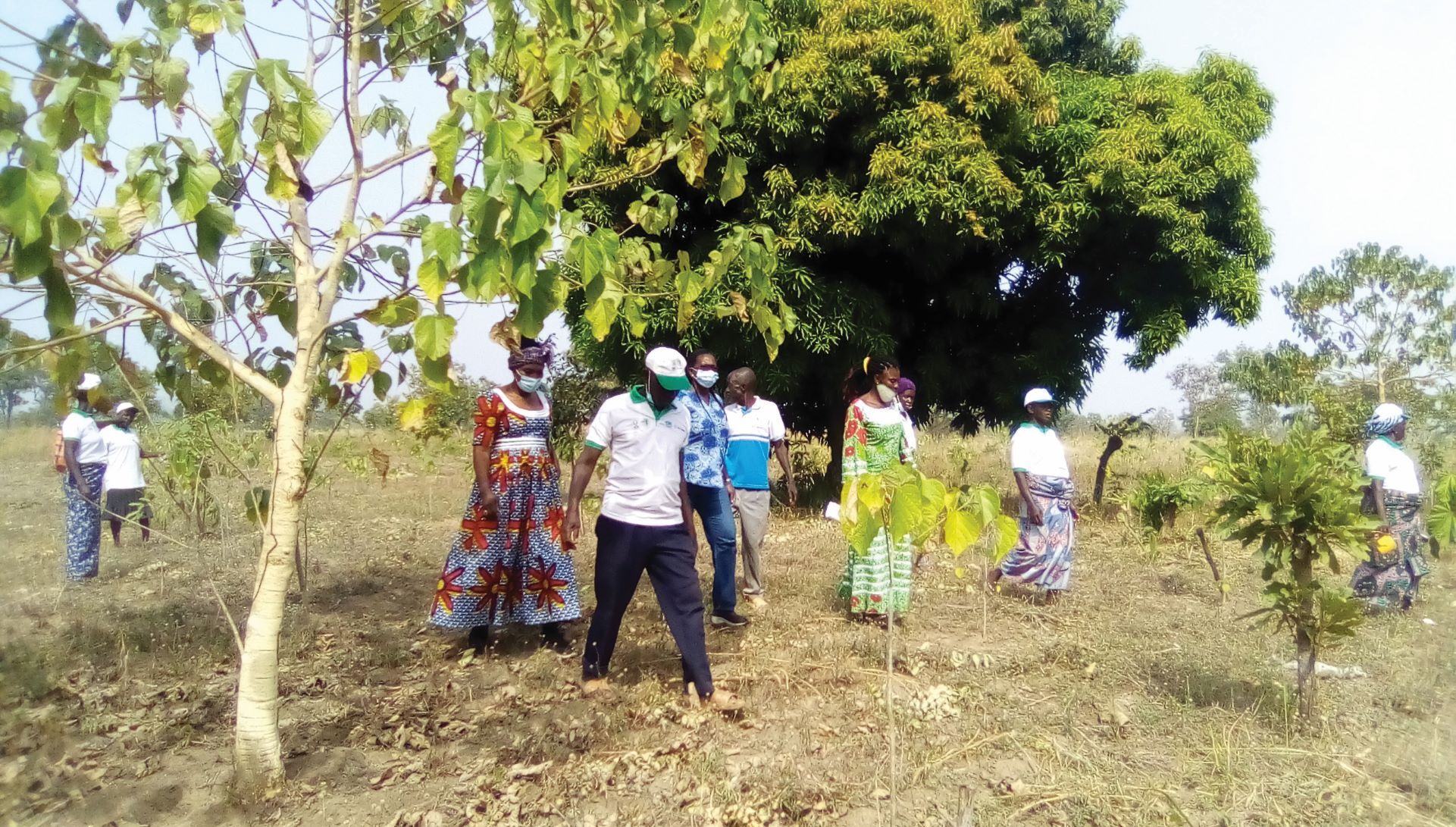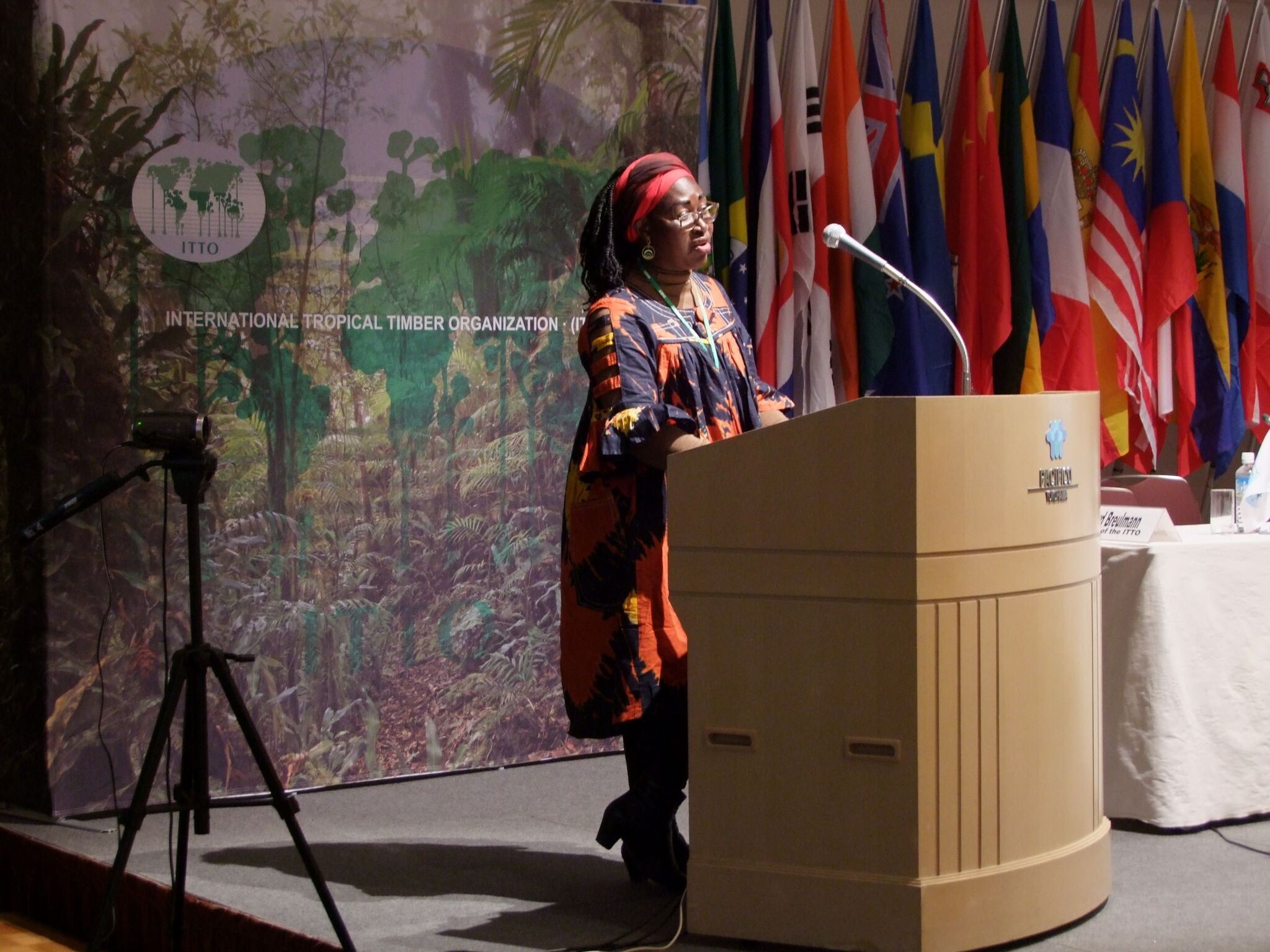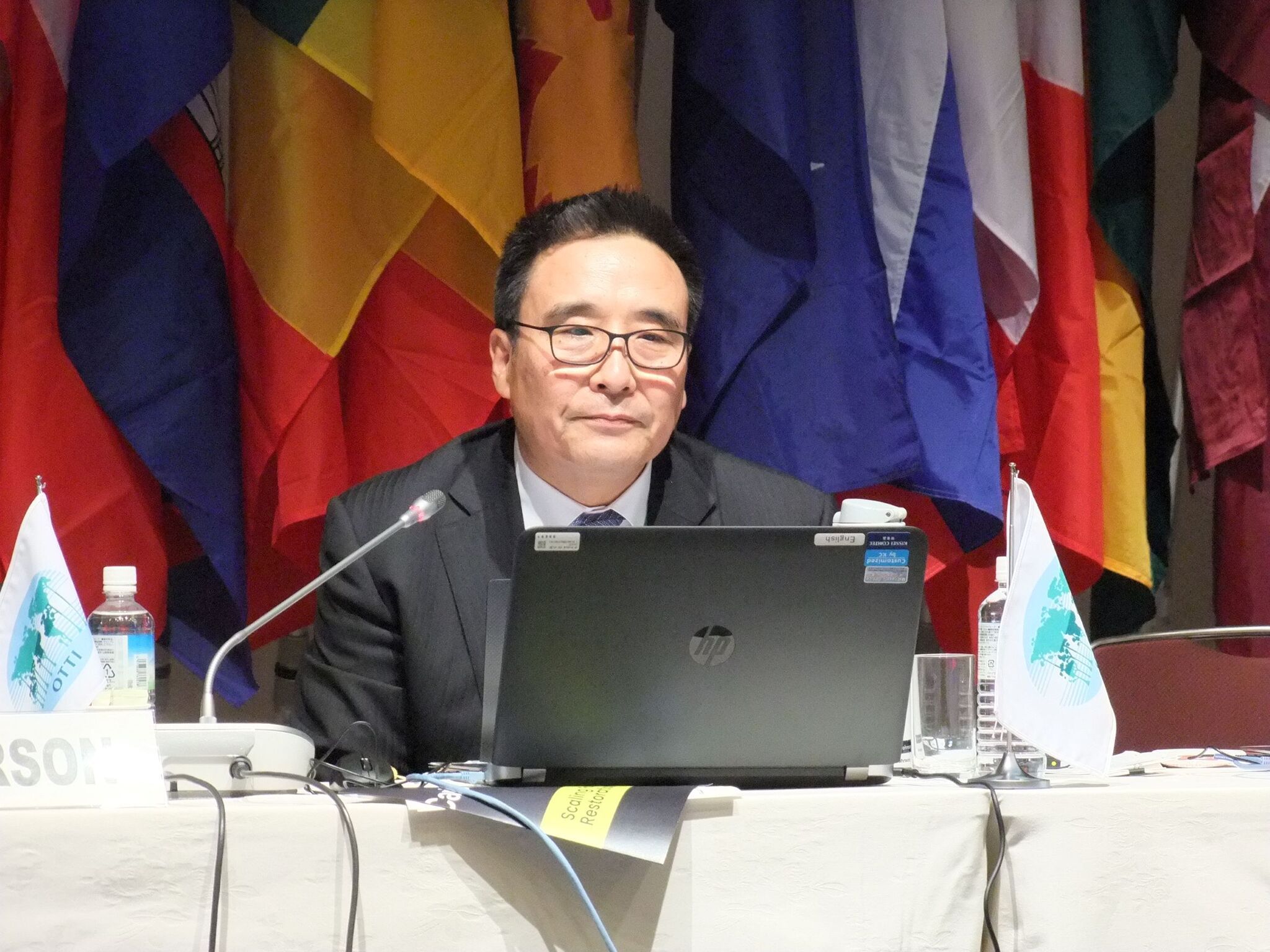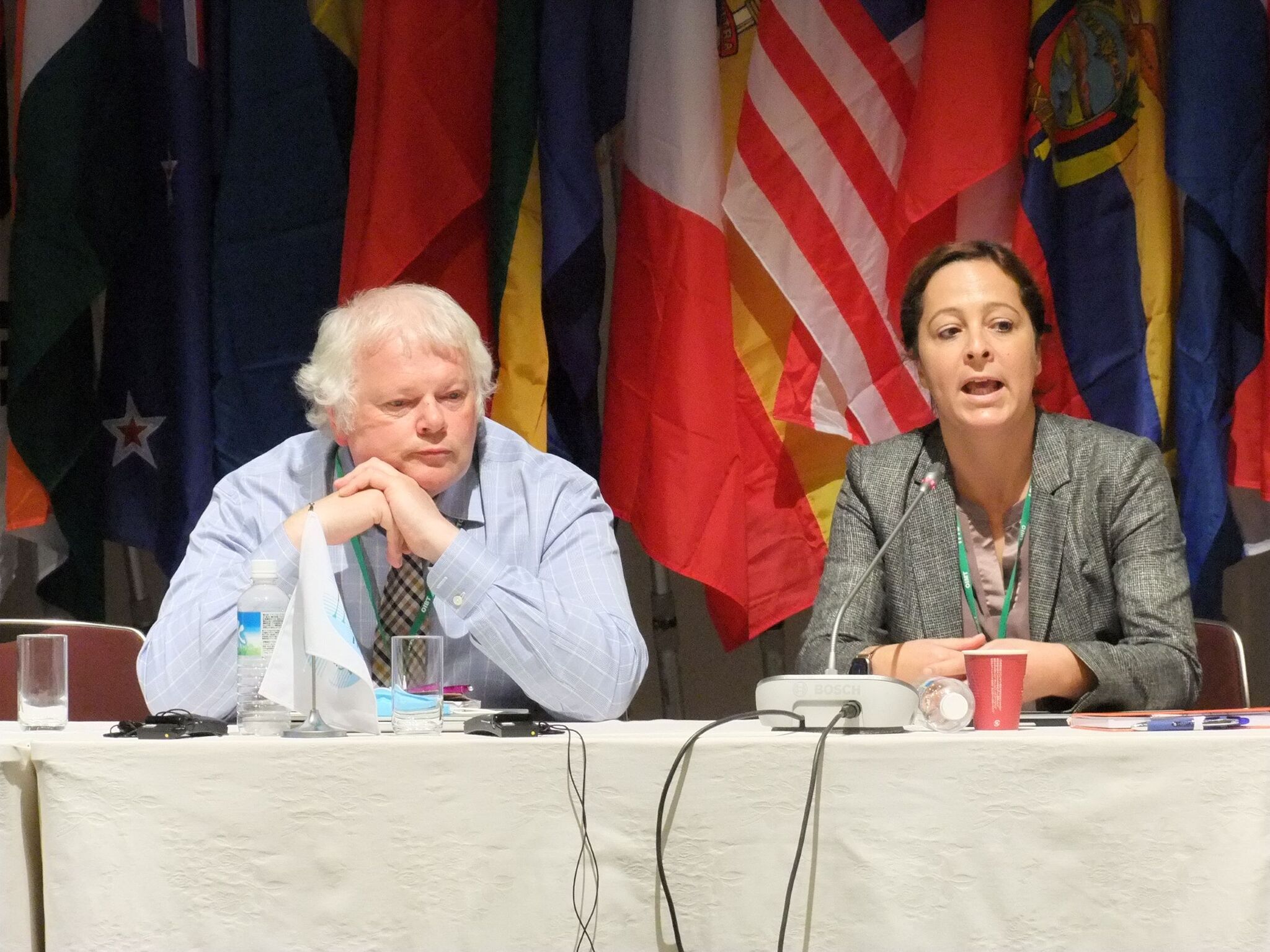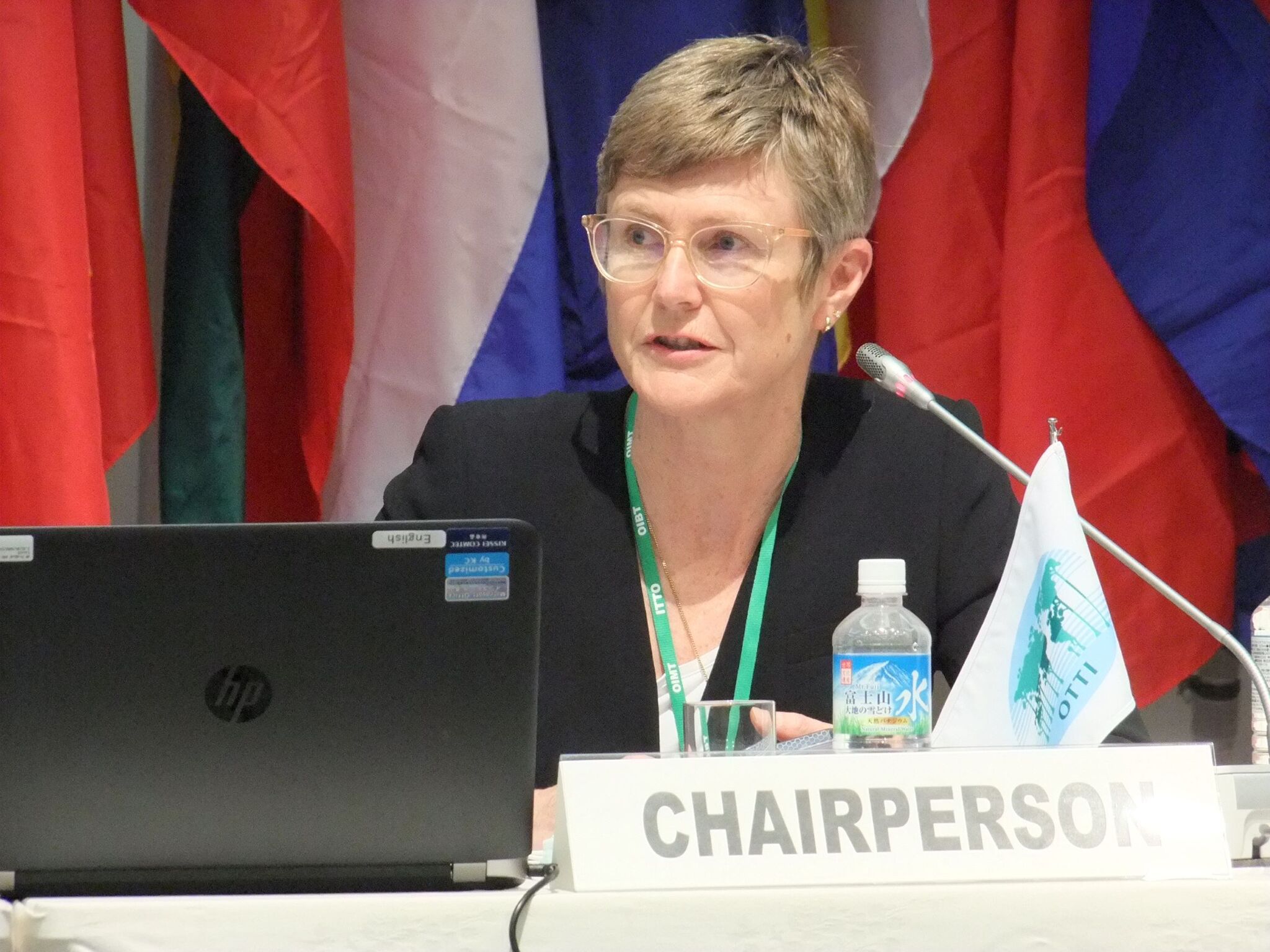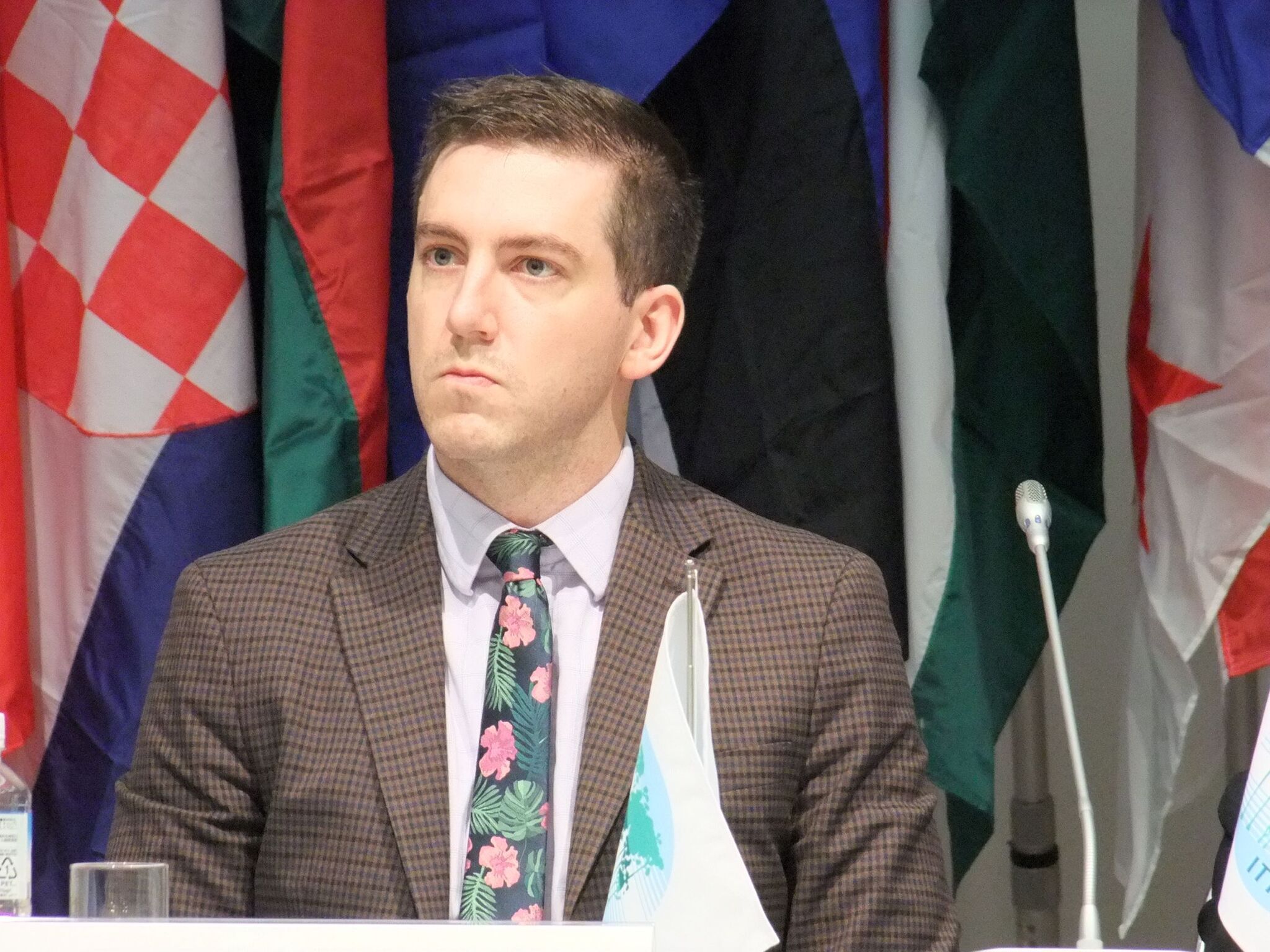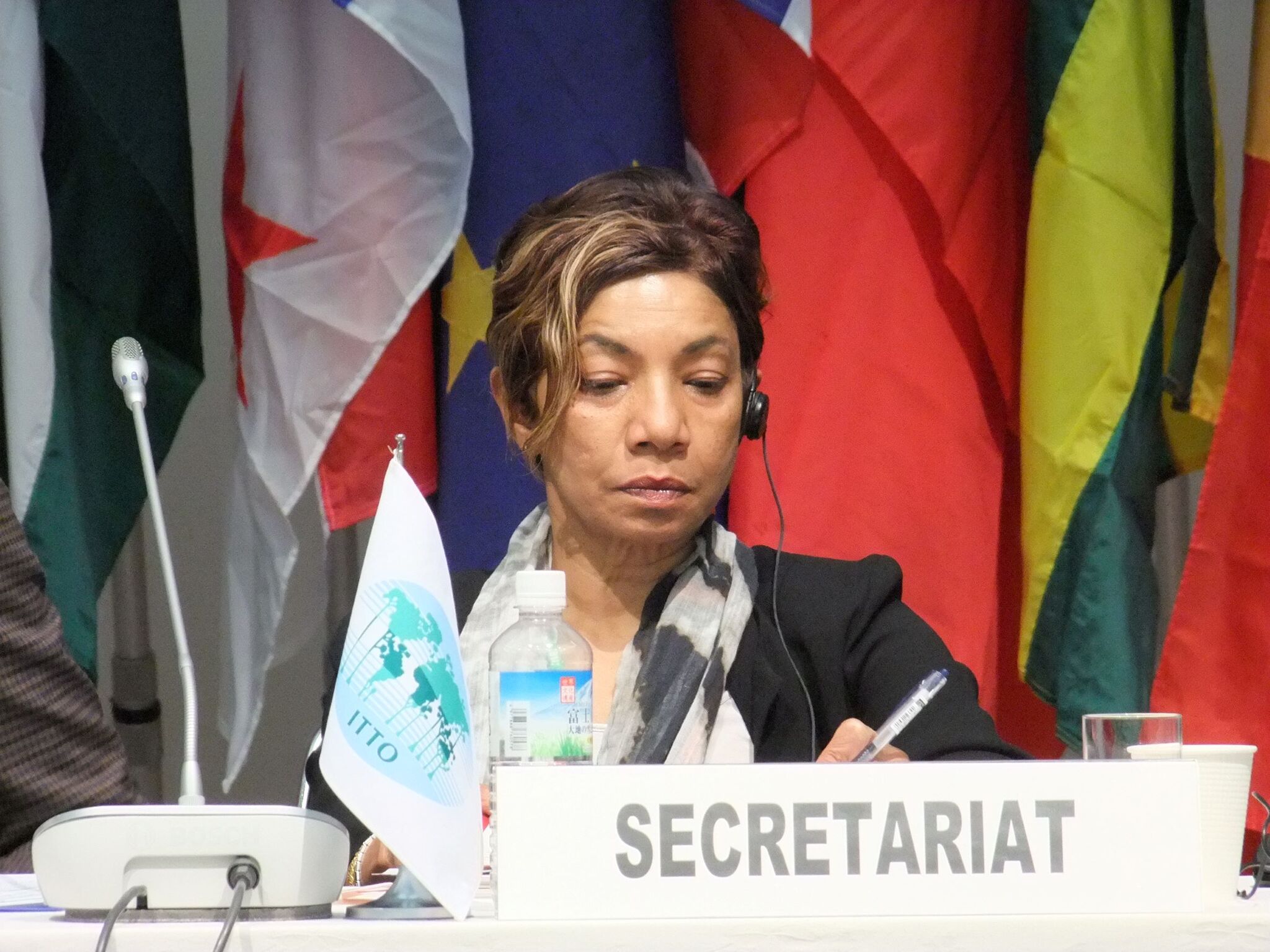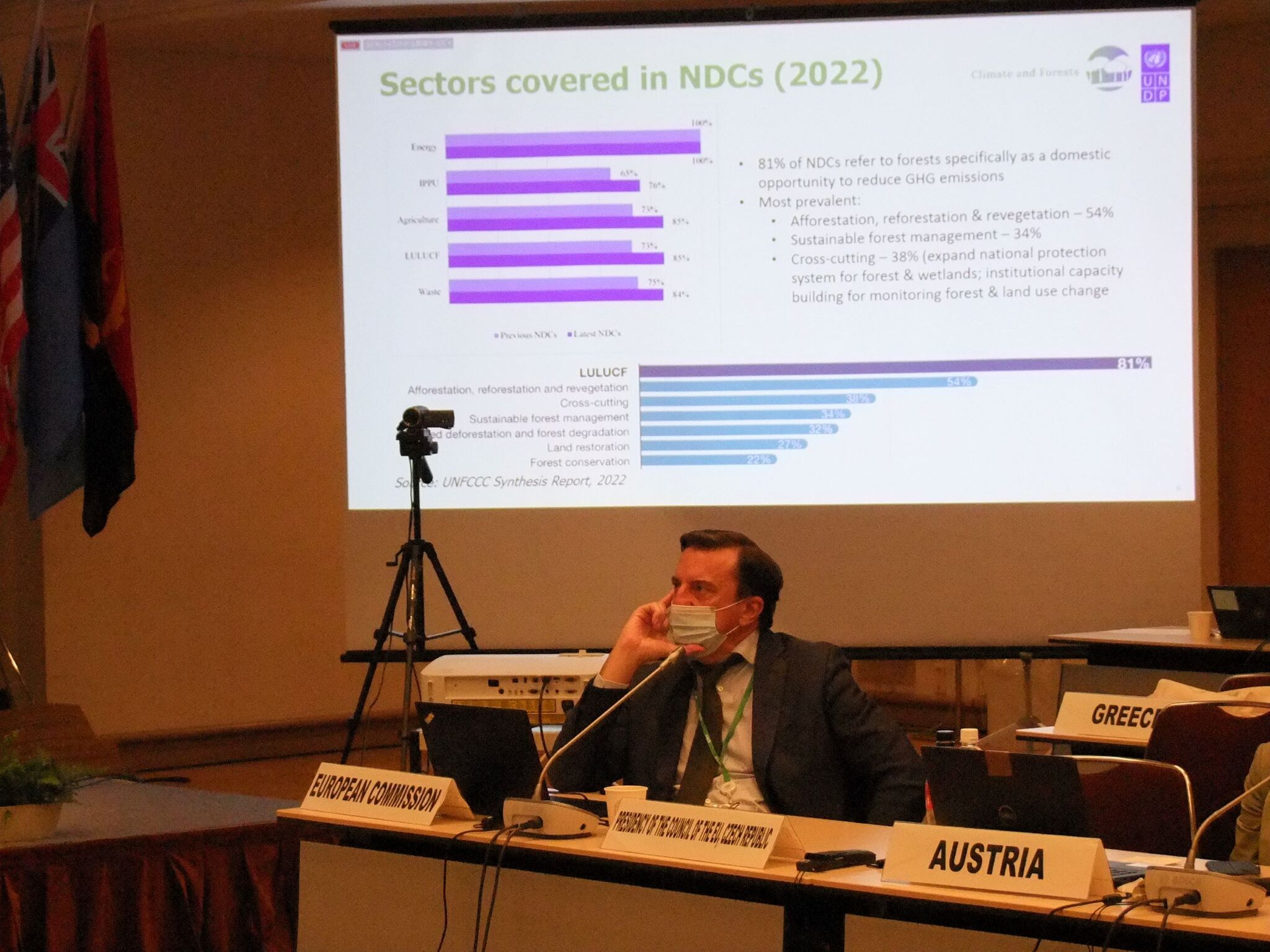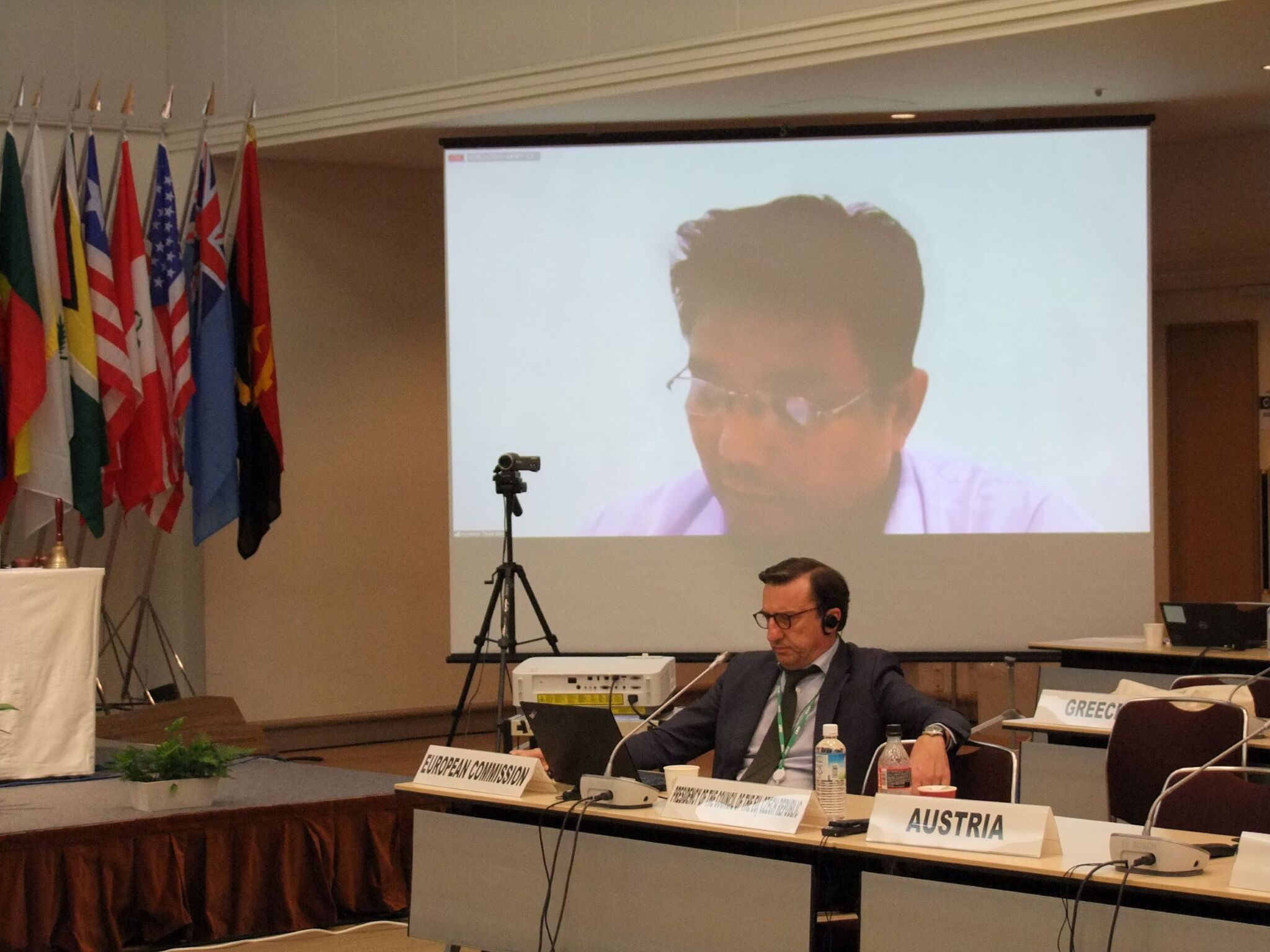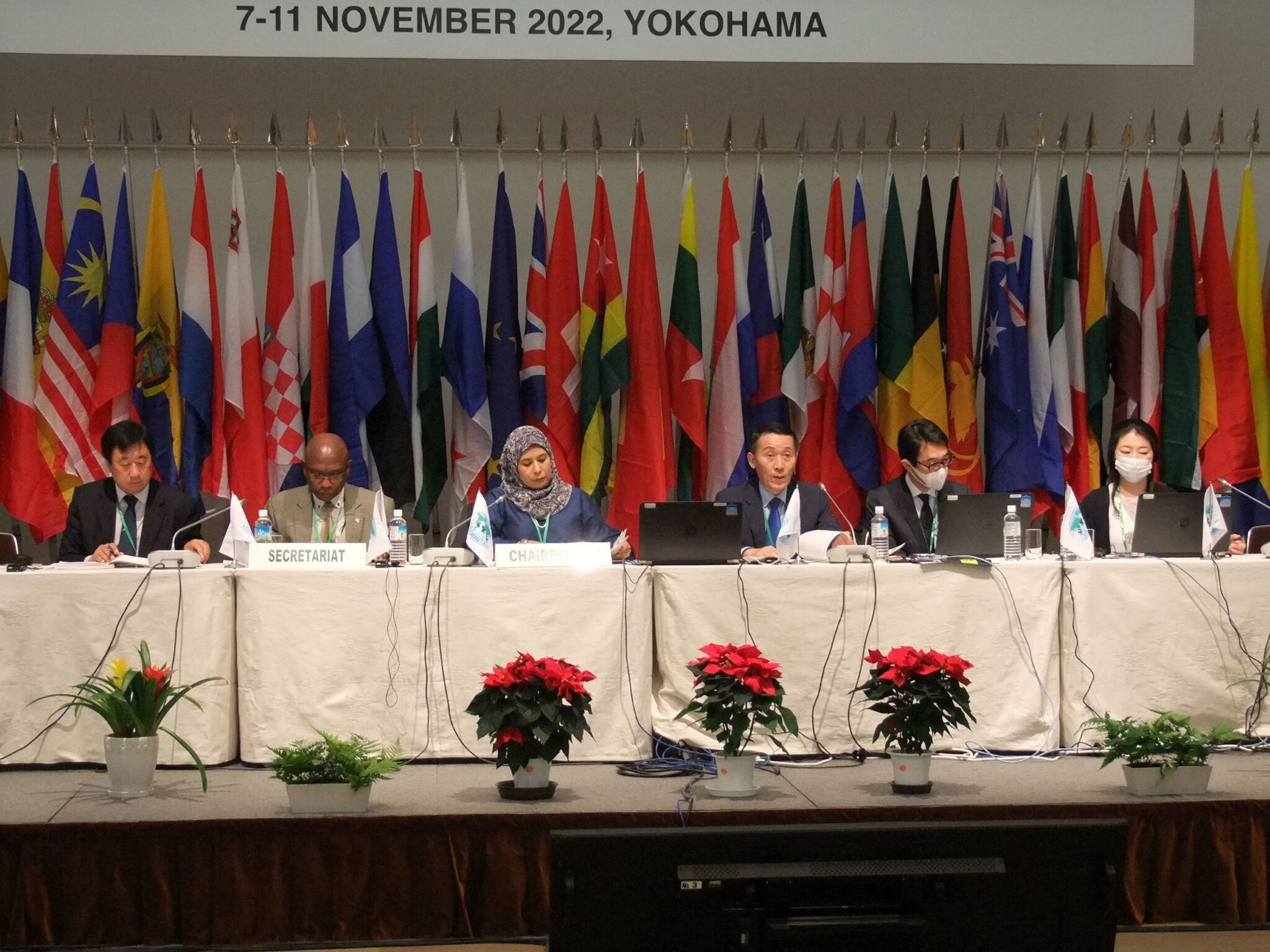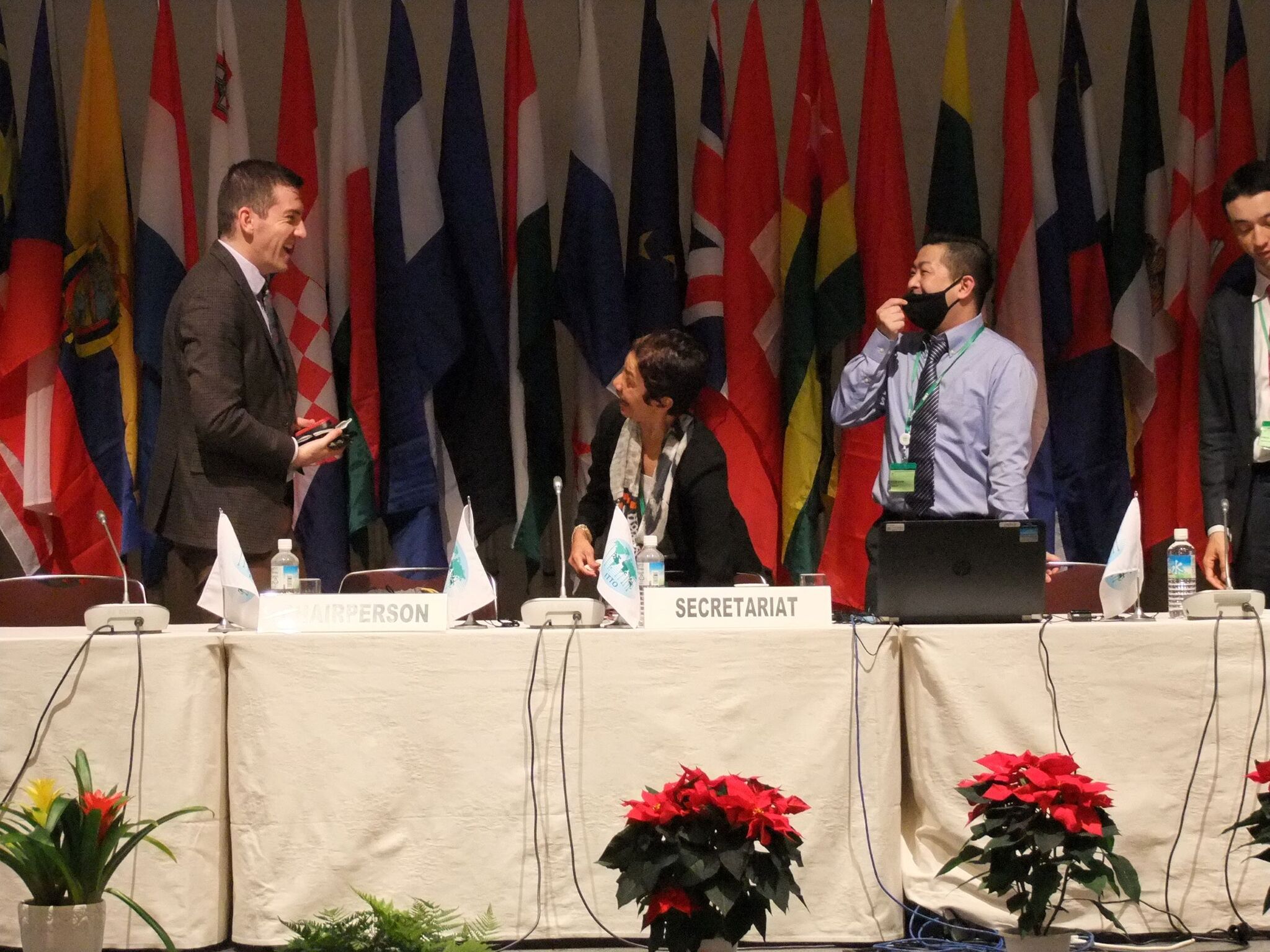Annual Market Discussion explores potential of carbon markets for tropical forests
Yokohama, Japan, 8 November 2022: Markets for forest carbon are growing fast and have huge potential, but low carbon prices and other challenges are restraining their capacity to benefit tropical forests and their stakeholders. This was a key message emerging from the Annual Market Discussion, which was held today as part of the 58th session of the International Tropical Timber Council.
The Annual Market Discussion is traditionally convened as part of a joint session of the Council’s committees as a means for informing Council members of key trends and issues in the tropical timber trade and increasing understanding among governments, traders and other stakeholders. This year’s Discussion featured five speakers as well as interventions from the floor on the theme of the carbon trade and tropical forests. It was chaired by Trade Advisory Group (TAG) co-coordinator Mr Barney Chan.
A full account of the 2022 Annual Market Discussion is available here.
Statement by the Trade Advisory Group
TAG co-coordinator Mr Bob Tate presented a statement on behalf of the TAG immediately following the Annual Market Discussion. The Trade Advisory Group was established in 2000 to provide inputs to ITTO’s policy and project work. It is open to anyone with an interest in the tropical timber trade, including representatives of tropical forest industries, timber exporters and importers, timber trade and industry consultants, and trade and industry associations.
In the statement, the TAG expressed concern about a draft law on deforestation under consideration by the European Council and Parliament and the risk that it could present barriers to trade, particularly for tropical countries. Tate noted that the TAG believes that “the EU [European Union] should avoid using these [draft] new regulations to curb free and fair trade, and improve on its communication with the stakeholders, including from outside of the EU, to assess the challenges faced by businesses towards compliance”.
The TAG statement also asserted that the rate of establishment of industrial tree plantations in the tropics is being hampered by a lack of reliable information. TAG called on ITTO to undertake a survey of existing tree plantations in ITTO producer member countries and to design a database on plantations to assist commercial decision-making on plantation establishment.
The statement noted that ITTO producer countries are yet to benefit significantly from voluntary forest carbon offset markets.
“There is a desperate need to disseminate information and guidance on the opportunities to producing members, and at the same time provide strategic advice and technical assistance,” according to the statement. TAG urged ITTO to organize a technical training workshop “to address the weaknesses and shortcomings of members so they can participate in climate-change mitigation while adding to their national revenue”.
The full TAG statement is available here.
Biennial Review and Assessment
As part of the Joint Committee Session, consultant Ms Fran Maplesden delivered an interim report on the ITTO’s Biennial Review and Assessment of the World Timber Situation (Council agenda item 18). This regular report compiles the most up-to-date and reliable international statistics available on global production and trade of timber, with an emphasis on the tropics.
As per usual practice, Ms Maplesden presented the initial findings from analysis of the most recent tropical timber trade and production data, with the final version of the Biennial Assessment and Review to be published in 2023 following further consultation with members. According to Ms Maplesden, the trade in tropical wood products has been more resilient than anticipated at the start of the COVID-19 pandemic in early 2020, particularly the trade in secondary processed wood products. A number of shocks to the world economy in 2022, however, are likely to dampen the outlook for tropical wood product markets, particularly the Russian invasion of Ukraine, a cost-of-living crisis caused by inflation pressures, and the economic slowdown in China. These will affect consumer markets for tropical wood products. Other findings included the following:
- The tropical log trade had been on a downward trend from a peak in 2014, largely reflecting a downturn in Chinese demand and the declining availability of tropical logs, particularly from Southeast Asia, with Malaysia’s exports now about 10% lower than they were a decade ago. Tropical log exports reached their lowest level in ITTO’s records in 2020, with some indications of recovery in 2021 and 2022.
- The trade in tropical sawnwood, plywood and veneer has been more resilient in response to the sharp recovery in final-product consumer markets, particularly the United States of America.
- China was the major tropical log importer in 2021, but the country’s imports have contracted by 44% compared with the peak year in 2014 and were affected in 2021 by the tightening of regulatory controls to limit property speculation and cool the housing market and by disruptions to supply chains. Although there were signs of recovery in the first six months of 2022, the economic outlook for the second half of 2022 is more pessimistic.
- The major trade flows in tropical plywood have changed significantly and now feature the United States of America as the major destination. Viet Nam’s exports have surged from a low base in 2013, and that country is now the second-largest exporter of tropical plywood after Indonesia.
- Exports of secondary processed wood products from tropical producer countries have soared in the last decade, mostly wooden furniture from Viet Nam to the United States of America, and this was the largest country-to-country trade flow in the world furniture trade in 2021.
- The appreciation of the United States dollar in 2022 relative to most other currencies is reducing the competitiveness of tropical exports traded in euros, as well as consumption levels in consumer markets.
- There is considerable uncertainty in the outlook for the tropical trade. A resurgence of COVID-19, or a worsening of the Russia-Ukraine conflict, could exacerbate supply-chain risks such as the further escalation of freight, transport and manufacturing costs.
Ms Maplesden noted that the information received to date from ITTO members for the Biennial Assessment and Review contains many gaps, and she encouraged members to make every effort to provide more complete information for inclusion in the final report to be published next year.
Support for women’s groups in the restoration of forest landscapes in Togo
In a final event under the Joint Committee Session, the Civil Society Advisory Group and Soka Gakkai, a non-governmental group in Japan, jointly presented the outputs of a community project implemented recently in two prefectures in Togo. The project has involved 100 women in the restoration of about 20 hectares of degraded forest landscapes. The women planted about 27 000 seedlings of 12 species.
“The project is not only helping to solve climate-change issues through reforestation, but also empowering women living in areas that are often left behind,” said Mr Aishima Tomohiko, Chair of the Soka Gakkai Peace Committee, which funded the project. “As this pilot project is entering its third year, we would like to actively engage in this project to create further value together with ITTO.”
Ms Rose Pélagie Masso, from implementing agency REFACOF in Cameroon, listed some of the benefits the project has provided for the participating women, such as the following:
- The women have acquired seedling production skills and can now produce seedlings for their own needs and those of their communities.
- Food production has enabled beneficiary households to meet their food needs and sell the surplus to generate substantial income.
- The women have improved their livelihoods and diversified their sources of income.
- The beneficiary groups have improved their visibility at the regional, prefectural and even national level.
- Social cohesion has been strengthened.
A video of the project was shown featuring some of the beneficiary women.
Other items in the joint session
Mr Qiang Li from the ITTO Secretariat presented an update on issues related to tropical timber market access and certification. Ms Sarah Storck and Mr George White informed delegates on the status of the Forest Law Enforcement, Governance and Trade Independent Market Monitoring programme.
Other Council agenda items on day 2
The Secretariat reported that quorum (agenda item 2) has not yet been achieved, and this item will be revisited later in the session. The Chair of the Credentials Committee, Ms Janet Shannon, presented a report under agenda item 9. This item will also be revisited later in the session.
Ms Isobel Camarena, from the Secretariat of the Convention on International Trade in Endangered Species of Wild Fauna and Flora (CITES), informed delegates of seven proposals for listings of tree species in the CITES Appendices. Dr Steven Johnson from the ITTO Secretariat reported on the collaborative work undertaken by the two secretariats in the previous 12 months under the CITES Tree Species Programme (agenda item 19).
Also, the Committee on Finance and Administration addressed various items on its agenda when it reconvened on day 2, and it will convene again on day 3. The Committee on Reforestation and Forest Management also convened today and will reconvene on day 3.
Today’s presentations are available here.

